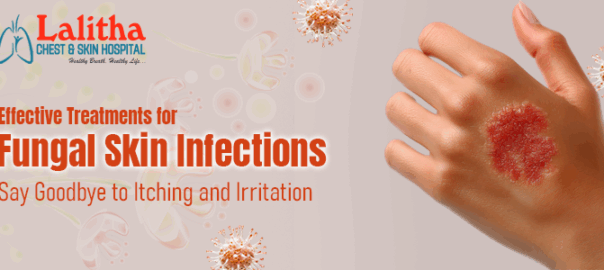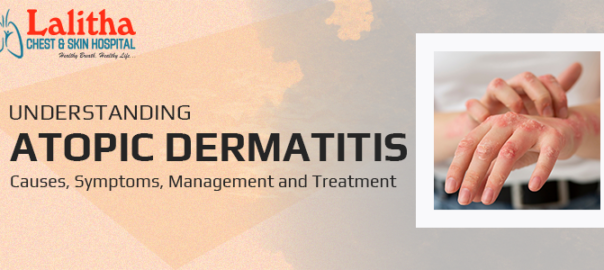Fungal skin infections may be common, but that doesn’t make them any less frustrating. They can cause persistent itching, redness, flaking, and discomfort, affecting your quality of life. Fortunately, with the right treatment, these infections are manageable and even preventable.
Fortunately, with the right treatment and care, fungal infections can be effectively managed and even prevented. In this blog, Dr. B. Jyothi, the best skin specialist in Karimnagar, explores the most effective treatments for fungal skin infections and shares tips on how to keep your skin healthy and itch-free.
What Are Fungal Skin Infections?
These infections are triggered by fungal organisms that grow on the skin, particularly in areas where warmth and moisture are present (underarms, armpits, and feet).
Common Types of Fungal Skin Infections:
Tinea Pedis (Athlete’s Foot): Affects the feet, often between the toes.
Tinea Cruris (Jock Itch): Appears in the groin and inner thighs.
Tinea Corporis (Ringworm): Circular, itchy rashes on the body or limbs.
Cutaneous Candidiasis (Yeast Infections): Often found in skin folds, like underarms or beneath the breasts.
Symptoms of Fungal Skin Infections?
- Persistent itching
- Redness or inflammation
- Flaky, peeling, or cracked skin
- Blisters or oozing in severe cases
Most Effective Treatments for Fungal Skin Infections:
- Topical Antifungal Treatments:
Mild to moderate infections usually respond well to over-the-counter creams, sprays, or powders such as:
- Clotrimazole
- Miconazole
- Terbinafine
- Tolnaftate
How to use: Apply 1–2 times daily for at least 2–4 weeks.
Pro tip: Continue using the medication for one full week after symptoms disappear to prevent recurrence.
- Oral Antifungal Medications:
For severe, widespread, or resistant infections, dermatologists may recommend oral antifungals like:
- Fluconazole
- Itraconazole
- Terbinafine (oral form)
These are particularly effective for infections of the scalp, nails, or recurring cases that don’t respond to topical treatments.
- Natural Remedies (Supportive, Not Substitute):
While not a replacement for medical treatment, some natural options may offer soothing relief:
Tea tree oil – Natural antifungal and anti-inflammatory properties.
Apple cider vinegar – Helps balance skin pH and inhibit fungal growth.
Aloe vera – Calms irritated skin and reduces redness.
Note: Always consult your doctor before combining natural remedies with prescribed treatments.
Preventing Fungal Infections: Tips for Healthy Skin
Preventing fungal infections is just as important as treating them. Here are some practical tips:
- Keep skin clean and dry, especially in folds and between toes.
- Wear breathable fabrics and moisture-wicking socks.
- Avoid sharing towels, shoes, or personal care items.
- Use antifungal powders if you’re prone to sweating.
- Change out of damp clothing immediately after workouts or swimming.
When to See a Doctor?
If your symptoms persist for more than two weeks, worsen, or spread, it’s time to consult a dermatologist. Persistent fungal infections may require stronger medications or additional tests to rule out similar-looking skin conditions.
Fungal skin infections might be annoying, but they’re usually easy to treat with the right approach. Whether you’re reaching for a reliable antifungal cream or making lifestyle adjustments to prevent a recurrence, taking action now can mean quick relief and healthier skin for the long haul. However, the majority ignore and suffer in silence and bide time looking for remedy.
If you’re struggling with fungal skin infections and searching phrases like “fungal infection treatment in Karimnagar,” “skin specialist for ringworm near me,” or “ringworm doctor near me” on Google, we’re here to save you time by providing the trusted information and support you need to make an informed decision.
At Lalitha Chest and Skin Hospital, Dr. B. Jyothi is a leading skin fungal infection specialist in Karimnagar, known for her expertise and innovative treatments for Fungal skin infections. For more information, visit our website: https://lalithachestandskinhospital.com/



